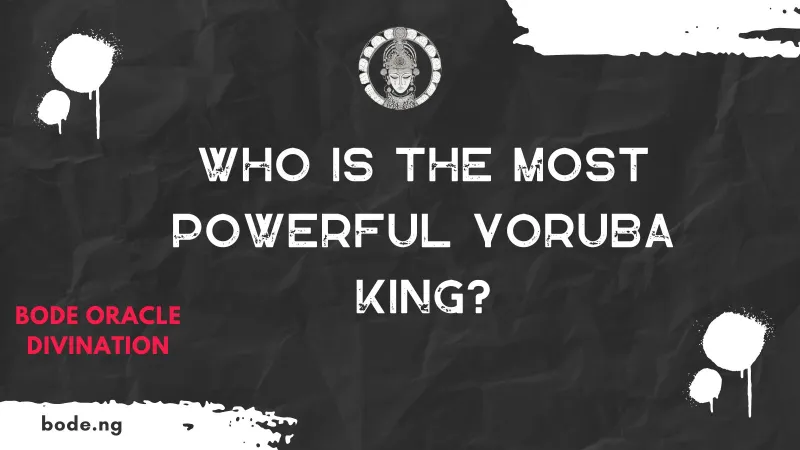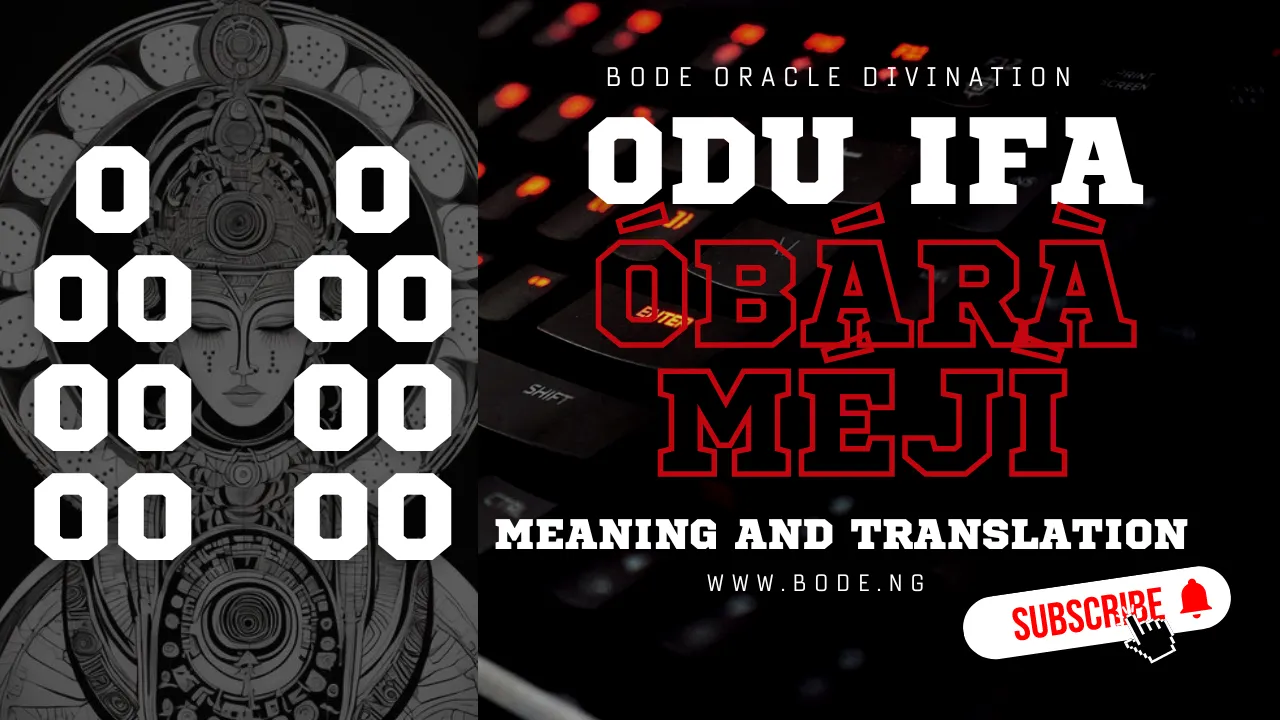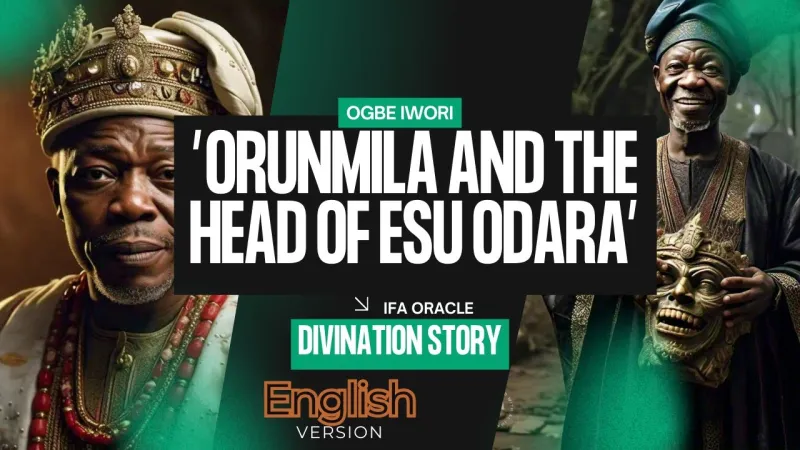In Yoruba culture, kings hold a special place as custodians of tradition, culture, and governance within their communities. Among these kings, the Ooni of Ife is often regarded as the most powerful and prestigious.
The Yoruba people, one of Nigeria's largest ethnic groups, have a deep-rooted system of monarchy and chieftaincy, with each kingdom ruled by a king whose title varies depending on the region.
The Ooni of Ife stands out because Ife is considered the ancestral home of the Yoruba people, often referred to as the cradle of their civilization.
The Ooni is not just a political figure but also a spiritual leader who embodies the cultural heritage and traditions of the Yoruba.
This revered role makes the Ooni a central figure in Yoruba identity and pride. The Ooni’s palace in Ife is a symbol of ancient history and a hub for preserving Yoruba customs, rituals, and art forms.
Other kings in Yoruba land also wield significant influence. For example, the Alafin of Oyo is known for his historical role in the Oyo Empire, one of the most powerful pre-colonial empires in West Africa.
The Oba of Lagos holds a position of authority in Lagos, a city that has grown into a major economic and cultural center in Nigeria.
Despite their prominence, the Ooni's role as the spiritual and historical custodian of Yoruba heritage gives him a unique and unparalleled status.
The reverence for the Ooni is deeply tied to the Yoruba belief system and their mythology, which traces their origin to Oduduwa, a deity and progenitor who is said to have established Ife.
This connection signify the Ooni's spiritual significance, making him a bridge between the past and present. Through festivals, cultural events, and international engagements, the Ooni plays a vital role in promoting Yoruba culture globally, fostering unity among Yoruba people, and preserving the legacy of civilization.
Oduduwa is regarded as the first ruler of Ife and is considered the ancestor of all contemporary and independent royal families and lineages across Yorubaland.
READ MORE
Yoruba Tribal Markings And Cultural Significance
Yoruba Kings Who Shape Culture, History, and Leadership
Ooni of Ife – The Spiritual Leader
The Ooni of Ife holds the esteemed position of being the spiritual leader of the Yoruba people, a role deeply rooted in the history and traditions of the tribe.
His significance dates back to the origin of the Yoruba civilization, as Ile-Ife is believed to be the ancestral home and spiritual hub of the Yoruba race. This connection elevates the Ooni’s status as both a custodian of Yoruba culture and a symbol of their rich heritage.
Based in Ile-Ife, Osun State, the Ooni is not only revered for his spiritual authority but also as a unifying figure for Yoruba people worldwide. Ile-Ife is widely regarded as the cradle of Yoruba civilization and the seat of ancient wisdom, myths, and traditions.
The Ooni's palace serves as a cultural and historical monument, preserving centuries-old practices, artifacts, and stories that define Yoruba identity.
The Ooni also plays a significant role in maintaining unity and fostering peace within Yoruba land and beyond. Through his leadership, he actively promotes the celebration of Yoruba festivals, such as the Olojo Festival, which highlights the deep spiritual and cultural beliefs of the Yoruba people.
Additionally, the Ooni is a global ambassador for Yoruba culture, using his platform to strengthen cultural ties and advocate for the preservation of African heritage on the world stage.
As a symbol of continuity and tradition, the Ooni’s influence extends beyond spiritual matters to matters of governance, reconciliation, and cultural revival.
His role as the spiritual leader embodies the pride, resilience, and unity of the Yoruba people, making him a central figure in their collective identity and legacy.
Alaafin of Oyo – The Imperial King
The Alaafin of Oyo stands as one of the most prominent and revered kings in Yoruba land, presiding over the historic city of Oyo in Oyo State.
Renowned for his regal authority, the Alaafin's role transcends the boundaries of his immediate domain, embodying a legacy of political, cultural, and military leadership that dates back to the era of the Oyo Empire.
His title, "Alaafin," meaning "owner of the palace," symbolizes his esteemed position as a central figure in Yoruba governance and tradition.
Historically, the Alaafin of Oyo played a crucial role in the administration of the Oyo Empire, one of the most powerful and influential empires in West Africa.
He was both a political leader and a commander of military forces, overseeing an intricate system of governance that included councils like the Oyo Mesi, who advised and supported his reign. This system balanced power while ensuring the stability and prosperity of the empire.
The Alaafin’s palace, a significant architectural and cultural landmark, serves as a hub for preserving Yoruba history and customs. It is a center of traditional authority and a symbol of the rich heritage of the Oyo people.
The Alaafin himself is not just a political leader but also a custodian of Yoruba culture, playing a vital role in the promotion of festivals, rituals, and traditional practices that have endured through generations.
The Alaafin remains a revered figure, often mediating in matters of Yoruba unity and advocating for the preservation of Yoruba traditions.
His influence extends into cultural diplomacy, where he acts as an ambassador of Yoruba heritage, strengthening connections within Nigeria and across the African diaspora.
Oba of Lagos – The Coastal Monarch
The Oba of Lagos, residing in the vibrant metropolis of Lagos, Lagos State, is a highly respected traditional ruler with significant authority and cultural influence.
As the custodian of the customs and traditions of Lagos, the Oba plays a crucial role in the administration, cultural preservation, and social harmony of one of Nigeria's most prominent cities.
Lagos, often referred to as the economic capital of Nigeria, is a bustling hub of commerce, culture, and diversity, and the Oba’s leadership reflects the city’s unique status.
The title "Oba," commonly used for kings among the Yoruba people, carries a distinct prestige in Lagos. The Oba of Lagos is not only a symbol of traditional authority but also a vital link to the city’s rich history, which spans centuries of trade, migration, and cultural evolution.
From its roots as a small coastal settlement to its rise as a global city, Lagos has always been shaped by the leadership and influence of its monarchs, with the Oba of Lagos serving as a central figure in its development.
The Oba's palace, located on Lagos Island, is a significant cultural landmark and a repository of the city’s traditions and heritage.
It serves as a venue for important events, ceremonies, and festivals that celebrate Lagos' rich Yoruba culture, such as the Eyo Festival, which showcases the city’s unique blend of tradition and modernity.
In modern times, the Oba of Lagos remains a respected authority, bridging the gap between traditional leadership and contemporary governance.
His influence extends beyond cultural matters, often playing a role in fostering unity among the diverse communities that call Lagos home.
The Oba is also a key figure in promoting Lagos’ cultural identity on national and international stages, ensuring that its traditions remain vibrant and relevant in a rapidly evolving world.
People Also Read
Opon Ifa The Ifa Divination Tray
Ifa Divination And How It Can Solve Your Problems
Yoruba Mythology Deities And Orisa
Awujale of Ijebu – The Influential Ruler
The Awujale of Ijebu is the esteemed traditional ruler of the Ijebu people, based in Ijebu-Ode, Ogun State. Renowned for their enterprising spirit, resilience, and vibrant cultural heritage, the Ijebu people hold the Awujale in high regard as both a spiritual leader and a symbol of unity and governance.
The Awujale's role transcends traditional leadership, as he wields significant influence over the socio-economic and cultural affairs of the Ijebu region. The title "Awujale" reflects a legacy of authority and respect that dates back centuries.
As the custodian of Ijebu traditions, the Awujale plays a crucial role in preserving the cultural identity of the Ijebu people. His palace in Ijebu-Ode serves as a historical and cultural hub, hosting ceremonies, festivals, and events that celebrate the rich history and traditions of the Ijebu kingdom.
One of the most notable contributions of the Awujale is his role in promoting economic growth and innovation among the Ijebu people, who are well-known for their entrepreneurial prowess.
The annual Ojude Oba Festival, one of the region’s most celebrated events, is as a result of this, showcasing Ijebu unity, cultural pride, and their longstanding history of commerce and trade. Beyond the borders of Ijebu land, the Awujale is a respected figure in Yoruba land and Nigeria as a whole.
He often serves as a mediator and advocate for the interests of his people, fostering cooperation and harmony among neighboring communities.
His leadership also plays a key role in promoting education and development within the Ijebu region, ensuring that its rich heritage is preserved while embracing progress and modernization.
Alake of Egbaland – The Esteemed Leader
The Alake of Egbaland serves as the paramount ruler of the Egba people, with his seat of authority located in Abeokuta, Ogun State.
Renowned for their resilience and rich cultural heritage, the Egba kingdom holds a prominent place in Yoruba history, particularly for its significant resistance against colonial rule and its notable contributions to Nigeria’s political, social, and economic development.
The Alake's title symbolizes his leadership and authority over the four major Egba clans: Ake, Owu, Gbagura, and Oke Ona.
The Egba people are deeply rooted in tradition and pride themselves on their strong sense of unity and identity. The Alake of Egbaland plays a central role in preserving these traditions, acting as both a spiritual and cultural custodian.
His palace in Abeokuta is a historical landmark that serves as a hub for cultural events, festivals, and royal ceremonies, showcasing the vibrant heritage of the Egba people.
A unique aspect of Egba governance is its structure, which includes the Olowu of Owu Kingdom, the rulers of Oke Ona, and the kings of Gbagura, each overseeing their respective clans under Alake's leadership.
This system reflects a harmonious balance of authority and unity among the Egba people, with Alake serving as a unifying figure and the principal representative of Egbaland in wider Yoruba and Nigerian affairs. Alake is also a key figure in modern Nigerian history.
The Egba kingdom's capital, Abeokuta, has long been a center of education, commerce, and progressive governance, with the Alake playing a pivotal role in advocating for development and fostering partnerships that benefit the region.
Events like the Lisabi Festival celebrate the Egba people's legacy, honor their ancestors, and promote their achievements in contemporary society.
As a symbol of Egba resilience and progress, the Alake of Egbaland bridges the gap between tradition and modernity, ensuring the cultural pride and unity of the Egba people endure while promoting their continued growth and development.
You Can Also Read More On
Brief History of Hermeneutics in Relation to Odu Ifa
Olubadan of Ibadan – The Honored Sovereign
The Olubadan of Ibadan is the esteemed traditional ruler of Ibadan, the largest city in Oyo State and one of the most historically and culturally significant cities in Nigeria.
Ibadan, renowned for its role in the Yoruba wars, its unique political system, and its reputation as a center of education and commerce, holds the Olubadan in the highest regard.
The title "Olubadan," meaning "lord of Ibadan," reflects the monarch's pivotal role in the governance, cultural preservation, and unity of this vibrant city.
The Olubadan ascends the throne through a well-structured and unique traditional system of succession that involves the rotation of eligible candidates from two major lines: the Otun (civil) and Balogun (military).
This system ensures order, continuity, and fairness in Ibadan’s leadership, making it one of the most respected traditional systems in Yoruba land.
As the spiritual and cultural leader of Ibadan, the Olubadan oversees significant festivals, ceremonies, and rituals that honor the city’s rich heritage.
His palace serves as a symbol of Ibadan's traditional authority and a gathering place for important discussions on the city’s welfare.
The Olubadan also plays a vital role in maintaining peace and mediating conflicts within the community, ensuring the harmonious coexistence of the diverse groups that make up Ibadan’s population.
In addition to his traditional duties, the Olubadan is a strong advocate for Ibadan’s development, often engaging with political and economic leaders to promote education, infrastructure, and cultural preservation.
Ibadan, being home to the University of Ibadan, Nigeria's premier university, and other notable institutions, benefits from the Olubadan’s efforts to uphold its legacy as a city of knowledge and progress.
The Olubadan of Ibadan stands as a unifying figure and a custodian of the city’s proud legacy, embodying the spirit of resilience, tradition, and progress that defines Ibadan and its people.
Soun of Ogbomoso – The Respected Monarch
The Soun of Ogbomoso is the revered traditional ruler of Ogbomoso, a historically significant and rapidly growing city in Oyo State.
Known for its contributions to Yoruba history and culture, Ogbomoso holds the Soun in high esteem as the custodian of its rich heritage and traditions.
The Soun's role goes beyond cultural preservation, encompassing leadership that promotes unity, development, and progress for the people of Ogbomoso.
The Soun’s palace, a symbol of authority and history, serves as the heart of traditional governance and cultural activities in Ogbomoso.
Under the Soun's leadership, the city celebrates its unique customs, festivals, and historical events, which honor its ancestors and strengthen communal ties. The Egungun Festival, among other cultural celebrations, is a testament to the city's vibrant traditions.
Ogbomoso’s historical significance is rooted in its resilience and contributions during the Yoruba wars, where it served as a haven and a stronghold for many.
The Soun’s position reflects this legacy, as he represents the city's enduring spirit and commitment to safeguarding its identity.
In addition to his traditional responsibilities, the Soun plays an active role in fostering modern development. Ogbomoso is home to key institutions like Ladoke Akintola University of Technology (LAUTECH), and the Soun’s advocacy for education, infrastructure, and economic growth has further elevated the city's standing in Nigeria.
His influence extends to promoting harmony among the diverse groups that call Ogbomoso home, ensuring the city remains a beacon of peace and progress. The Soun of Ogbomoso epitomizes leadership rooted in tradition while embracing the needs of a modern and evolving society.



